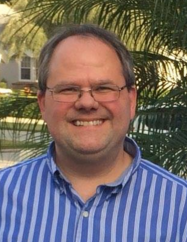Police shootings, violent retaliations, and peaceful protests have put race at the top of America’s political agenda. In Kansas, another racial issue has haunted us for seven years and counting: the vitriolic, overheated rejection of everything associated with President Obama, including the Democratic Party label.
In 2006 Democrats won most elected, statewide offices in Kansas, plus two of four U.S. House seats. Today, the state is Republican from top to bottom, even as officeholders like Governor Sam Brownback set polling records for unpopularity, having consistently and egregiously mismanaged the state’s budget and more. Yet voting “D” seems off the agenda. Starting in 2010, Republicans have won here by tying their opponents to Obama.

Why is this? Truth be told, Obama is a political moderate. Consider:
• Obama’s signature law, the Affordable Care Act or “Obamacare,” combines new regulations on health insurers, subsidies for the uninsured, and incentives to states that expand Medicaid. Some of these policies are broadly popular, such as the ban on denying coverage to those with preexisting medical conditions. Medicaid expansion has passed even in heavily Republican states, including Arkansas and Kentucky (but not Kansas).
Obama’s refusal to support a government-run health insurance program like Canada’s has brought him heated opposition from critics on the left: most prominently, Sen. Bernie Sanders. Granted, one would expect small-government conservatives to also oppose at least parts of the ACA, but why all the drama about imaginary “death panels” and the like?
• The growth of the federal debt in 2009-10 is largely due to the Great Recession and the Troubled Asset Relief Program (TARP), which Obama inherited from the George W. Bush Administration. Since then, federal debt as a percentage of the Gross Domestic Product has steadily declined.
• What about the expanded federal role in environmental policies such as air quality standards and protecting the lesser prairie chicken? These are legitimate debates about executive power but they hardly capture the “Patriots Unite, Take Our Country Back” rhetoric of Obama’s frantic opponents. Besides, the courts have blocked many of these executive actions.
• On illegal immigration, Obama has overseen more deportations than any other U.S. President.
• Finally comes gun control: supposedly at the core of Obama hatred. In truth, Obama has not made gun control a signature issue of his political career. As a state and then U.S. Senator, he was never a lead sponsor of gun control legislation, nor did he make gun control a defining campaign issue. Only once during his two terms has Obama taken a clear stand on a gun control bill, in supporting mild restrictions after the Sandy Hook school shootings in 2012. That bill did not become law. Yet gun and ammunition sales spiked when Obama was elected President, and he continues to be public enemy #1 for the NRA and its members.
Again, why?
These facts buttress Obama’s case as a political moderate, but they have not deterred the acidic hatred of him from infecting politics in Kansas and other “red” states. While having coffee in Wichita, a colleague even overheard one man tell his friend “somebody should shoot that [expletive deleted],” referring to Obama and his supposed desire to disarm American gun owners: a fear utterly unrelated to facts.
It is impossible to pinpoint anything in Obama’s record that explains this seething hatred, but perhaps the reaction to Obama’s race, his diverse supporters, and his Kenyan Muslim father can do so.
“Bleeding Kansas” was founded on a racial division: abolition vs. slavery. Wild-eyed abolitionist John Brown still stares at us from the walls of the state capitol. Obama’s own mother was born here. Will 2016 be the year Kansans honestly confront our attitudes about race? If we want a more rational, more productive political climate, this is a necessary first step.
Michael A. Smith is a Professor of Political Science at Emporia State University.
